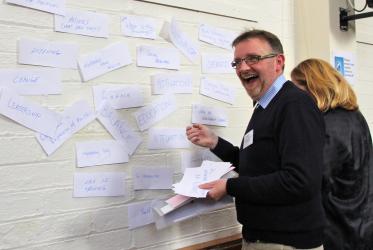Displaying 1 - 20 of 25
Anglican Communion in Ireland celebrates year of “Come&C”
08 February 2016
La Comunión Anglicana de Irlanda celebra el año del “Vengan y vean”
08 February 2016
Consultation considers right to food in context of climate change
15 December 2015
Land rights focus of panel discussion
17 November 2015
Los derechos sobre la tierra tema de una mesa redonda
17 November 2015
A humble man firmly rooted in faith
20 August 2015
WCC Executive Committee speaks out on migrant crises
12 June 2015
New UN document opens door for churches to do more for indigenous rights
23 September 2014









